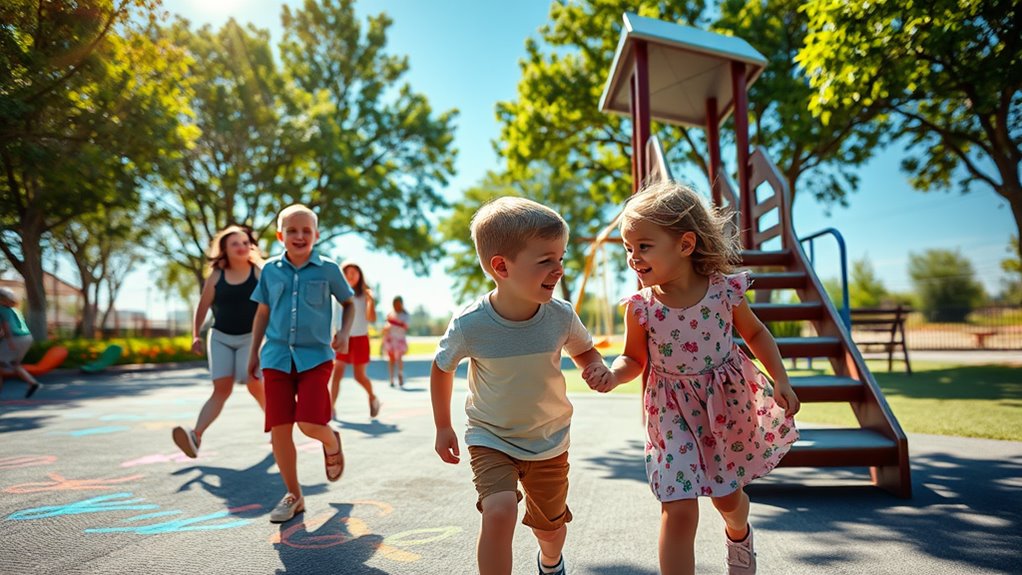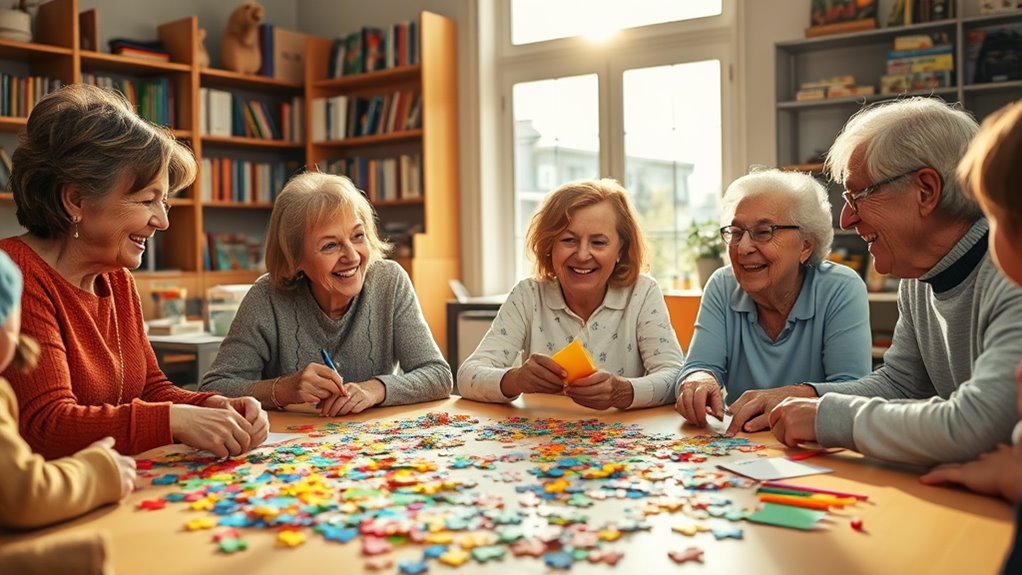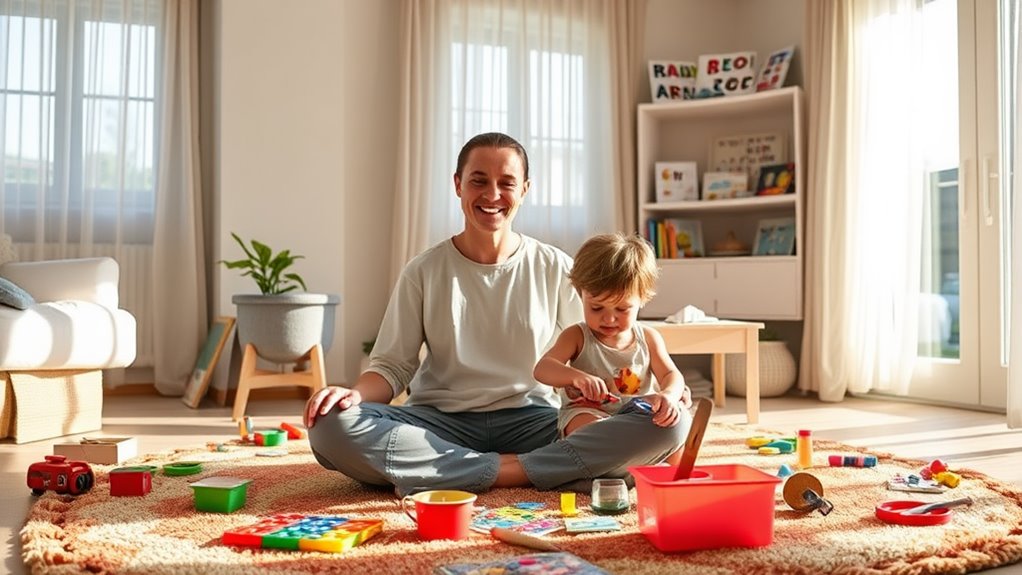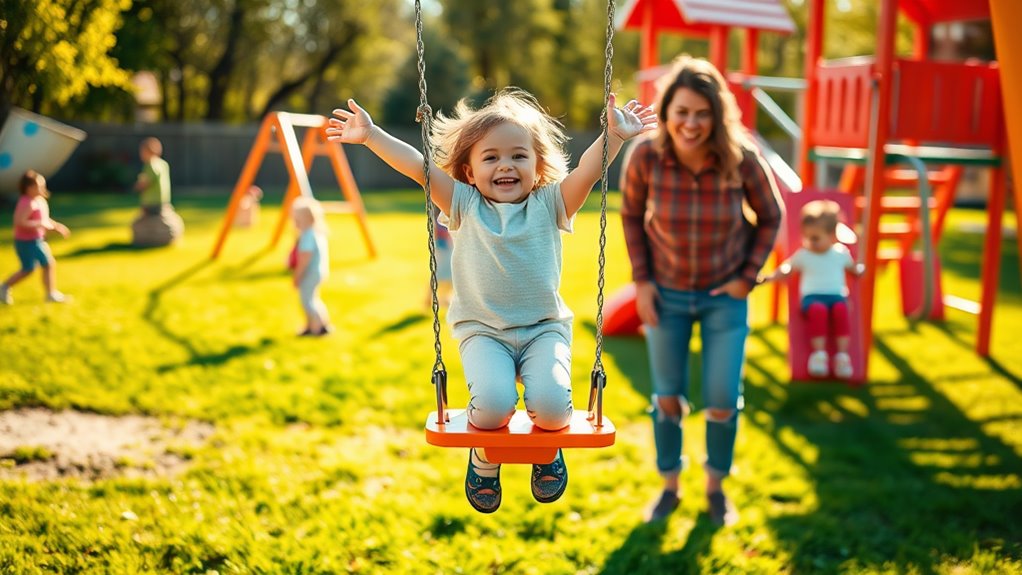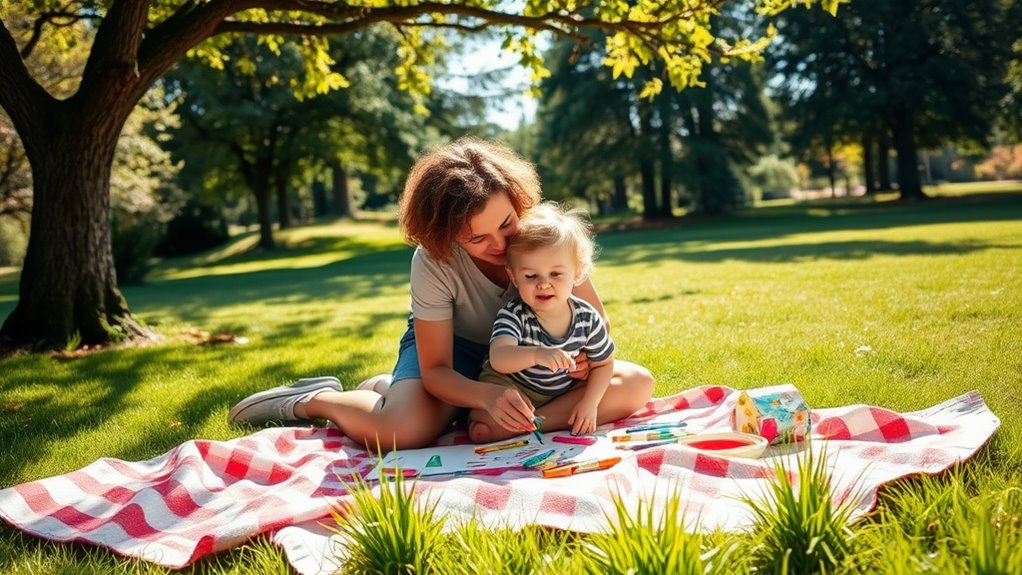The Ultimate Guide to Helping Your Kids Build Strong Friendships
Helping your kids build strong friendships is crucial for their growth. Start by understanding the stages of friendship development, from preschool playmates to adolescent connections. Encourage social skills through role modeling and teaching communication techniques. Engage them in fun group activities, like team sports or collaborative art projects, to foster connections. Additionally, support their emotional intelligence by teaching empathy and conflict resolution. It’s important to build resilience, helping them view challenges as opportunities to learn. There’s so much more you can do to empower their friendships and social skills, so keep exploring effective strategies to support them along the way.
Key Takeaways
- Encourage open communication by teaching children to express feelings and ask open-ended questions for deeper connections with peers.
- Facilitate role-playing scenarios to practice social interactions and build confidence in handling various friendship situations.
- Engage in team-building activities and creative projects to foster cooperation, collaboration, and shared experiences among children.
- Support emotional intelligence through empathy training and discussions about feelings to enhance understanding and conflict resolution skills.
- Model resilience by sharing personal stories of friendship challenges and encouraging a positive mindset towards mistakes and learning opportunities.
Understanding Friendship Development
Friendship development is a natural process that evolves as kids grow. As a parent, you’ll notice your child navigating different friendship stages, each marked by unique dynamics and challenges. Early on, friendships may be based on shared play and interests, but as they age, peer influences become more significant.
In the preschool years, friendships are often simple and revolve around play activities. As kids enter grade school, they start to form deeper emotional connections, learning to navigate conflict, trust, and loyalty. This is when you may see them gravitate toward friends who influence their choices, from the games they play to the values they adopt.
By the time your child reaches adolescence, peer influences can heavily shape their identity. They begin to seek acceptance and approval from their friends, often testing boundaries and exploring their individuality.
Understanding these friendship stages helps you support your child as they grapple with the complexities of social relationships. Ultimately, recognizing how friendships evolve allows you to provide guidance during these formative years, helping your child build strong, healthy connections that can last a lifetime.
Encouraging Social Skills
Social skills are crucial for building and maintaining friendships, and you can play an important role in helping your child develop them. Start by role modeling positive social interactions yourself. Show them how to greet others, maintain eye contact, and listen actively.
Children often learn best by observing, so when they see you engaging effectively with friends or family, they’ll be more likely to imitate those behaviors.
In addition to role modeling, teach your child specific communication techniques. Encourage them to express their feelings clearly and to ask open-ended questions when talking to peers. This not only helps them engage in conversations but also fosters deeper connections.
Practice these techniques through role-playing scenarios at home, allowing your child to navigate different social situations in a safe environment.
Don’t forget to provide feedback after social interactions, discussing what went well and what could be improved. This will help them refine their skills over time.
Activities to Foster Connections
Engaging your child in activities designed to foster connections can significantly enhance their ability to form friendships. Consider incorporating team building games into their routine. These games not only promote cooperation but also teach kids how to work together towards a common goal.
Activities like relay races or obstacle courses encourage communication and problem-solving skills, making friendships more likely to blossom.
Creative collaboration is another excellent way to help your child connect with others. Encourage them to participate in group art projects or science experiments where they can share ideas and build something together.
This hands-on approach allows kids to bond over shared interests and experiences, strengthening their social ties.
Additionally, outdoor adventures like scavenger hunts or nature walks can provide unique opportunities for kids to interact and explore together.
The excitement of discovery can lead to shared memories, which are vital for building lasting friendships.
Supporting Emotional Intelligence
Emotional intelligence is a crucial skill that helps kids navigate their relationships and understand their own feelings. By supporting your child’s emotional intelligence, you’re setting them up for stronger friendships and better communication.
Here are a few ways you can foster this important skill:
-
Encourage empathy training****: Help your child identify and understand others’ emotions. Ask them how they think someone might feel in different situations.
-
Model conflict resolution: Show them healthy ways to handle disagreements. Discuss how to listen actively and express their feelings without blaming others.
-
Create opportunities for reflection*: After social interactions, ask your child about their feelings and the feelings of their friends. This encourages them to *think critically about emotional responses.
Building Resilience in Friendships
While friendships can bring joy and connection, they also come with challenges that require kids to build resilience. It’s important for you to help your child navigate these friendship challenges so they can grow stronger and more adaptable.
Start by encouraging them to express their feelings openly. This emotional honesty can serve as a foundation for addressing issues directly and constructively.
Introduce resilience strategies like problem-solving and empathy. Teach your child to identify the problem, brainstorm solutions, and evaluate the outcomes. This not only helps them tackle conflicts but also builds their confidence.
Remind them that it’s okay to make mistakes; every setback can be a learning opportunity.
Model resilience yourself. Share stories about your own friendship challenges and how you overcame them. This shows your child that difficulties are a normal part of any relationship.
Encourage them to maintain a positive mindset, focusing on what they can control rather than dwelling on setbacks.
Lastly, remind your child that true friends will respect their feelings and support them through tough times. Building resilience in friendships is a vital skill that will serve them well throughout life.
Frequently Asked Questions
How Can I Tell if My Child Is Struggling With Friendship?
You can tell if your child’s struggling with friendship by observing signs of friendship anxiety, like reluctance to engage in social settings or difficulty reading social cues. Pay attention to their behavior and feelings during interactions.
What Signs Indicate a Healthy Friendship for My Child?
Not every child’s friendship looks the same, but you can spot healthy ones by noticing supportive behaviors, trust, respect, and shared joy. These friendship qualities create a solid foundation for your child’s social development and happiness.
How Do I Handle My Child’s Friendship Conflicts?
When handling your child’s friendship conflicts, encourage open communication and active listening. Teach them conflict resolution techniques and help them develop friendship skills, so they can navigate issues and strengthen their relationships effectively.
When Should I Intervene in My Child’s Friendships?
Imagine your child navigating a maze of friendships. Intervene when you see them struggling to set boundaries or facing emotional turmoil. Helping them build resilience now will empower their future relationships, guiding them through life’s mazes.
How Can I Help My Child Make Friends in a New Environment?
To help your child make friends in a new environment, encourage icebreaker activities in group settings and arrange playdate opportunities with classmates. These interactions can foster connections and ease their transition into new friendships.

